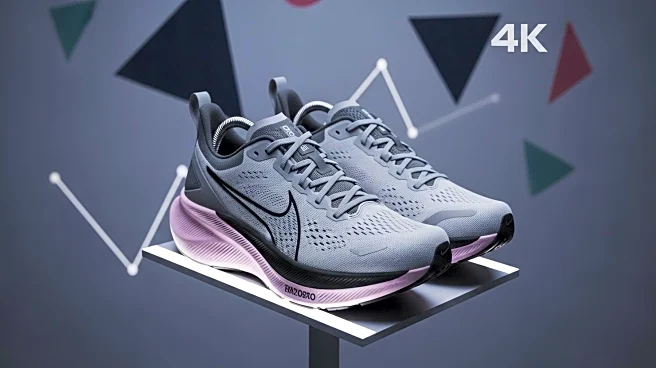What is the story about?
What's Happening?
The running industry is experiencing a technological transformation, with advancements such as carbon-plated shoes enabling marathoners to achieve unprecedented speeds. This shift has led to a surge in marketing for various running products, some of which are untested and potentially risky. The industry now generates over $4 billion annually in the U.S., driven by products that promise to enhance performance and recovery. However, skepticism exists regarding the efficacy of these products, as some may not deliver the promised benefits. The rise of the 'super shoe' has notably changed the landscape, allowing elite runners to break records, but also posing risks for amateur runners who may not be adequately prepared for their use.
Why It's Important?
The technological advancements in running gear have significant implications for both the sport and the market. While elite athletes benefit from improved performance, amateur runners face challenges in navigating the plethora of products marketed to them. This commercialization could lead to increased spending on gear that may not provide substantial benefits, impacting consumer behavior and expectations. Additionally, the focus on technology may overshadow the fundamental aspects of running, such as training and consistency, which are crucial for long-term success. The industry's growth reflects broader trends in sports commercialization, raising questions about the balance between innovation and authenticity.
What's Next?
As the running industry continues to evolve, stakeholders may need to address the ethical considerations of marketing unproven products. Regulatory bodies could play a role in ensuring that claims made by companies are substantiated by scientific evidence. Runners and coaches might focus on educating consumers about the importance of proper training and preparation, rather than relying solely on technological aids. The industry could also see a shift towards more sustainable and accessible products, catering to a wider range of athletes. The ongoing dialogue between innovation and tradition will likely shape the future of running.
Beyond the Headlines
The commercialization of running gear highlights broader cultural shifts towards consumerism and the pursuit of quick fixes. This trend raises ethical questions about the responsibility of companies to provide truthful information and the potential exploitation of consumer insecurities. The emphasis on technology may also influence societal perceptions of sports, prioritizing performance over enjoyment and community engagement. Long-term, this could affect the inclusivity and accessibility of running as a sport, challenging its status as a simple and universal activity.















